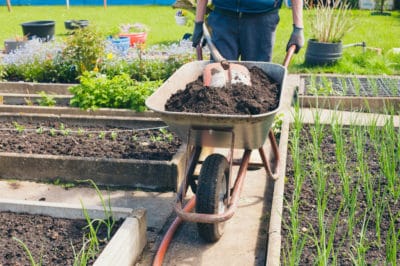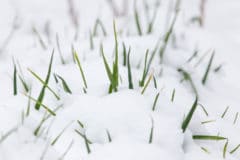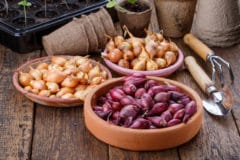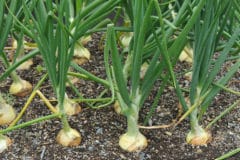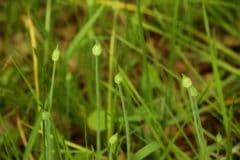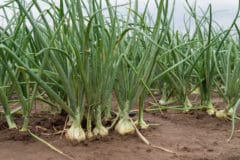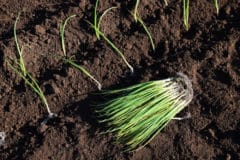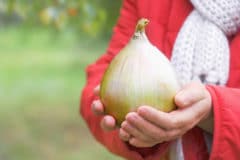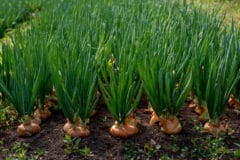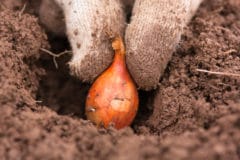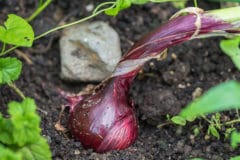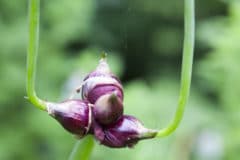Understanding How Onions Develop
To develop a safe, effective fertilizer strategy, it’s important to know how onions grow and develop. There are five stages of onion development:
- Germination – Takes place from 7-30 days after planting, depending on the onion variety.
- Leaf Growth – The first two leaves appear in 30-50 days after planting. In 50-70 days, the next two leaves appear.
- Bulb initiation – After 70-90 days, five to seven leaves appear, and the bulb grows to twice the diameter of the onion neck.
- Bulb growth, stage one – In 90-110 days, eight to 12 leaves appear, and the bulb reaches 1-1.5 inches in diameter.
- Bulb growth, stage two – From 110-130 days after planting, the bulb grows from 1.5–3 inches in diameter.
- Bulb growth, stage three – From 130-150 days after planting, the bulb diameter grows bigger than 3 inches in diameter.
- Maturation – Maturation occurs after 150 days, and the onion tops start dropping.
Nitrogen Requirements for Onions
One of the main nutrients that onions need is nitrogen. During the leaf growth stages, you don’t need to add fertilizer to your soil. When bulb initiation takes place, spread organic compost high in nitrogen into the garden soil. Reapply the compost every 2-3 weeks to keep nitrogen levels up.
If you want, you can test your soil before reapplying to make sure the soil needs more nitrogen. When the onion necks start to soften, stop fertilizing because too much nitrogen can delay bulb maturation. This can cause the bulb necks to thicken and split. This usually happens about four weeks before harvest.
Other Nutrients for Onion Growth
Although onions rely mostly on nitrogen for growth, they also need potassium and calcium. Other nutrients required but in lesser amounts include sulfur, magnesium and phosphorous. About 80 percent of the nutrients supplied to onions are present in the bulb and the rest are in the onion tops. The following are other sources of nutrients for onions:
- Potassium – Several organic sources of potassium include kelp, hardwood ashes, alfalfa, greensand and sheep manure.
- Calcium – Common sources of calcium include gypsum, ground oyster shells and ground eggshells.
- Magnesium – Epsom salt and potash are soluble sources for this nutrient.
- Sulfur – Rainwater, well water and gypsum are organic sources of sulfur.
- Phosphorous – If your soil has a phosphorous deficiency, the onion bulbs will be small and take longer to mature. Organic sources of phosphorous include bone meal, manure, compost and alfalfa.
The best way to determine if your soil needs fertilizer is to do a soil test. The results will tell you exactly which nutrients you need for your garden.
